January 4, 2021
United Nations: Flag Installation Ceremony for Incoming Non-permanent Members of Security Council.
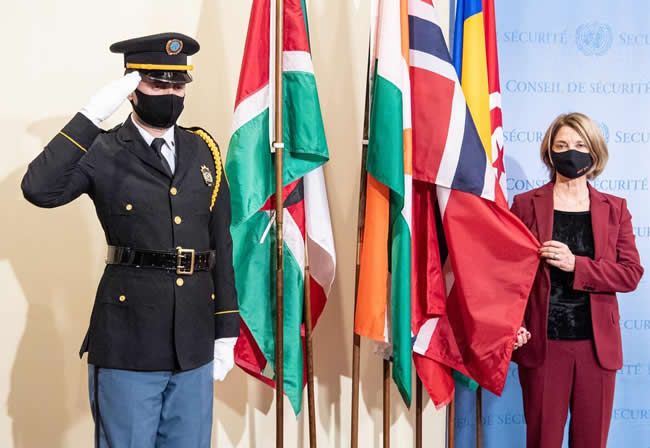
Photo: Mona Juul, Permanent Representative of Norway to the United Nations, holds the flag of Norway during the flag installation ceremony for the incoming non-permanent members of the Security Council. January 04, 2021. The United States of America. New York. UN Photo/Eskinder Debebe.
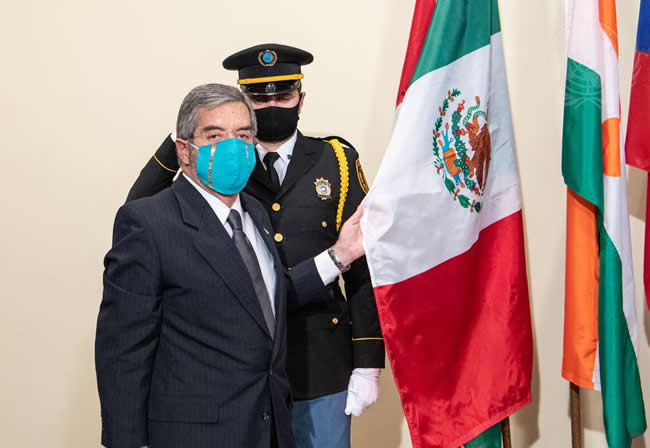
Photo: Juan Ramón de la Fuente RamÃrez, Permanent Representative of Mexico to the United Nations, holds the flag of Mexico during the flag installation ceremony for the incoming non-permanent members of the Security Council. January 04, 2021. The United States of America. New York. UN Photo/Eskinder Debebe.
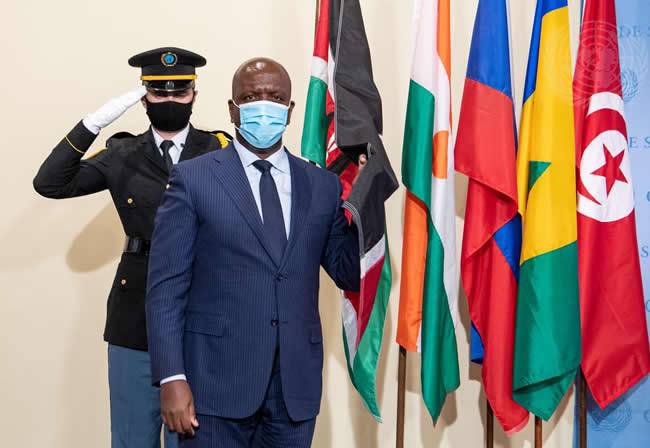
Photo: Martin Kimani, Permanent Representative of the Republic of Kenya to the United Nations, holds the flag of Kenya during the flag installation ceremony for the incoming non-permanent members of the Security Council. January 04, 2021. The United States of America. New York. UN Photo/Eskinder Debebe.
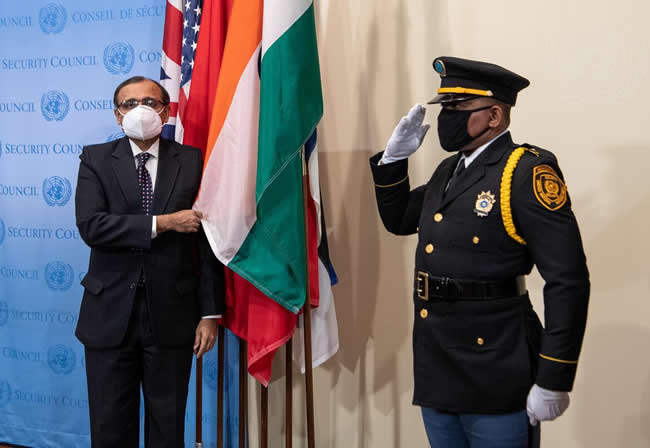
Photo: T. S. Tirumurti, Permanent Representative of India to the United Nations, holds the flag of India during the flag installation ceremony for the incoming non-permanent members of the Security Council. January 04, 2021. The United States of America. New York. UN Photo/Eskinder Debebe.
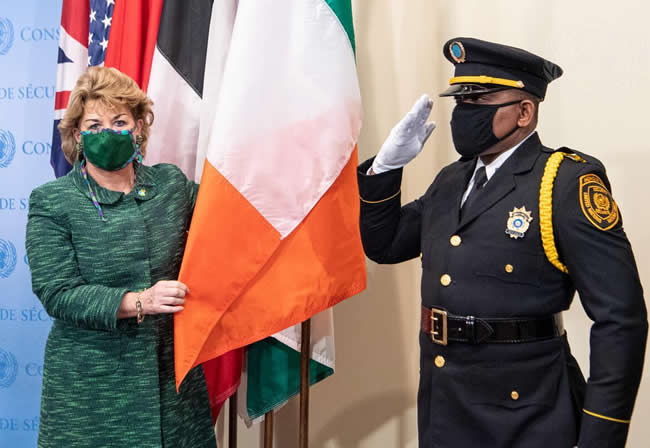
Photo: Geraldine Patricia Byrne Nason, Permanent Representative of Ireland to the United Nations, holds the flag of Ireland during the flag installation ceremony for the incoming non-permanent members of the Security Council. January 04, 2021. The United States of America. New York. UN Photo/Eskinder Debebe.
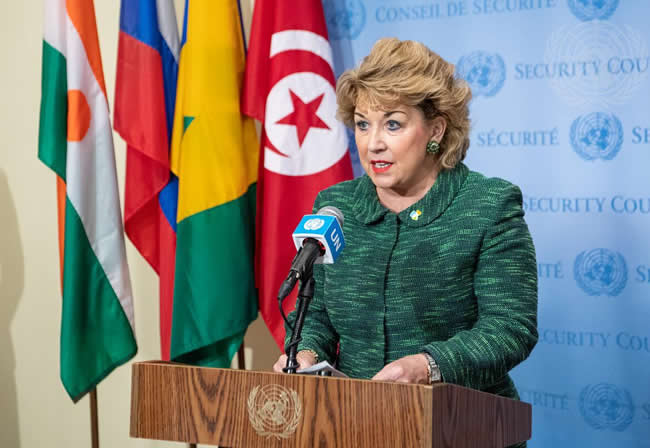
Photo: Geraldine Patricia Byrne Nason, Permanent Representative of Ireland to the United Nations, speaks during the flag installation ceremony for the incoming non-permanent members of the Security Council. January 04, 2021. The United States of America. New York. UN Photo/Eskinder Debebe.
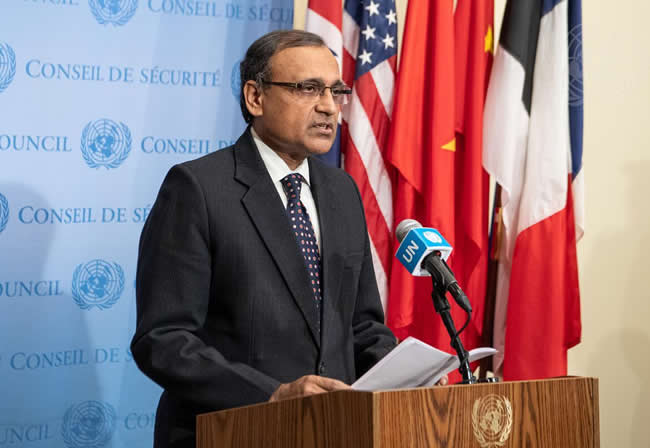
Photo: T. S. Tirumurti, Permanent Representative of India to the United Nations, speaks during the flag installation ceremony for the incoming non-permanent members of the Security Council. January 04, 2021. The United States of America. New York. UN Photo/Eskinder Debebe.
Source: United Nations, New York
|GlobalGiants.Com|







Edited & Posted by the Editor | 8:11 PM | View the original post
December 14, 2020
UNESCO and Education International call on Governments to consider Teachers and School Personnel as a Priority Group in COVID-19 Vaccination Efforts
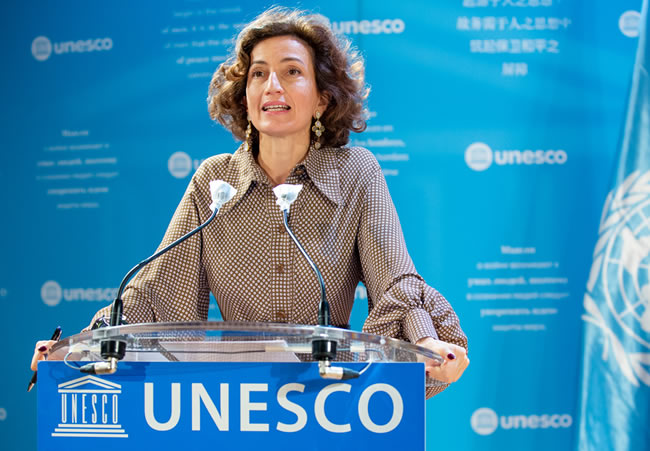
Photo: UNESCO Director-General Audrey Azoulay speaking at the 15th session of the Intergovernmental Committee of the UNESCO Convention for the Safeguarding of the Intangible Cultural Heritage. December 14, 2020. Image provided by & copyright © UNESCO / Christelle ALIX.
Paris, December 14, 2020 — As countries begin to administer COVID-19 vaccines, UNESCO and Education International, the global federation of education unions, call on governments and the international community to consider teachers and school personnel priority group in vaccination efforts.
“Reopening schools and education institutions safely and keeping them open as long as possible is an imperative,” said UNESCO Director-General Audrey Azoulay and Education International’s General Secretary David Edwards in the joint video message.” In this context, as we see positive developments regarding vaccination, we believe that the governments must consider teachers and education support personnel as a priority group.”
Educational disruptions impacted over 100 million teachers and school personnel due to the COVID-19 crisis around the world. UNESCO’s latest data indicates that schools remain fully closed in 27 countries affecting over 300 million learners. Closures harm students’ learning, safety, and well-being, affecting the most vulnerable students the hardest. It also brings adverse social and economic consequences to societies.
The message, released on the 60th anniversary of the Convention that promotes the right to education, praises teachers for their dedication throughout school closures. “When schools and education institutions closed, teachers and support personnel remained on the frontline. They reinvented the way we teach, the way we learn. They supported their students - too often with no training or adequate tools.”
In the Global Education Meeting convened by UNESCO in October 2020, heads of state and ministers committed to supporting all teachers and education personnel as frontline workers and prioritizing students and educators’ health and safety.
Source: UNESCO
|GlobalGiants.Com|
Teachers and school personnel must be a priority group in COVID-19 vaccination efforts — UNESCO and Education International.







Edited & Posted by the Editor | 2:58 PM | View the original post
December 8, 2020
Investment Promotion Agencies from Estonia, India, and Rwanda receive UN Awards for excellence.
• The Costa Rican Investment Promotion Agency wins special recognition for mainstreaming gender in investment promotion.
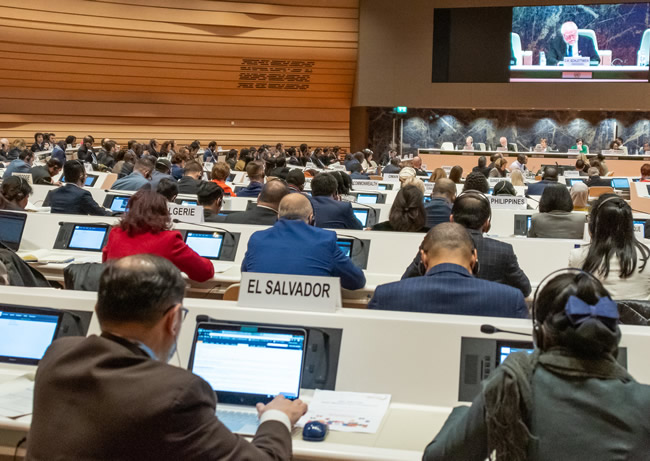
Photo: UNCTAD held its 12th Debt Management Conference at the Palais des Nations in Geneva, Switzerland, from 18 to 20 November 2019. The conference was followed by the Debt Management and Financial Analysis System (DMFAS) Programme Advisory Group, on 21 and 22 November 2019. Image provided by & Copyright © UNCTAD. Photo by Jean-Philippe Escard (UNCTAD). File Photo.
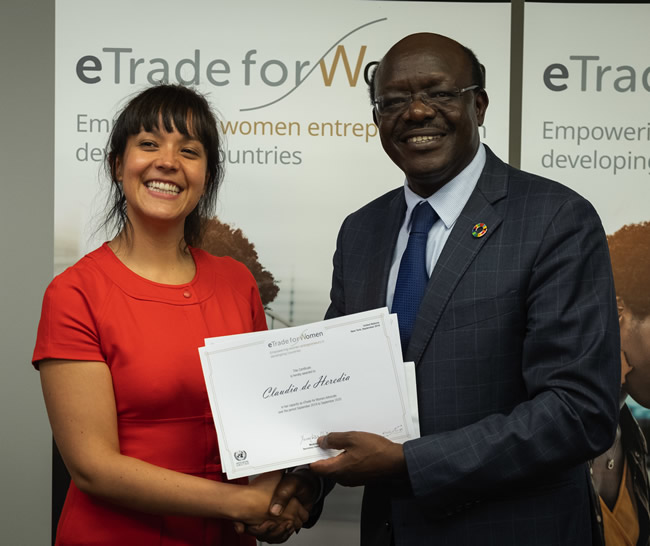
Photo: UNCTAD Secretary-General Mukhisa Kituyi presents an award to Claudia de Heredia. UNCTAD’s eTrade for Women initiative. Seven women from across the developing world were announced as UNCTAD’s first “eTrade for Women Advocates” on 24 September on the margins of the 74th session of the UN General Assembly in New York. These women are crushing the gender gap by building flourishing digital businesses and creating wealth and employment in their countries through vision, passion, and dedication. Image provided by & Copyright © UNCTAD. Photo by Tim Sullivan (UNCTAD). File Photo.
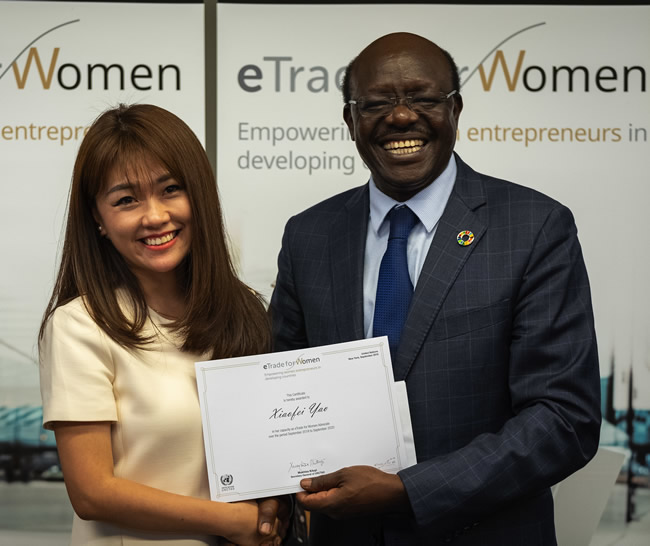
Photo: UNCTAD Secretary-General Mukhisa Kituyi presents an award to Xiaofei Yao. UNCTAD’s eTrade for Women initiative. Seven women from across the developing world were announced as UNCTAD’s first “eTrade for Women Advocates” on 24 September on the margins of the 74th session of the UN General Assembly in New York. These women are crushing the gender gap by building flourishing digital businesses and creating wealth and employment in their countries through vision, passion, and dedication. Image provided by & Copyright © UNCTAD. Photo by Tim Sullivan (UNCTAD). File Photo.
Geneva, Switzerland, 8 December 2020 — UNCTAD has awarded three investment promotion agencies for their responses to the COVID-19 pandemic crisis.
United Nations Conference on Trade and Development (UNCTAD) announced the winners during the 2020 Global Investment Promotion Conference, a satellite event of the World Investment Forum, organized by UNCTAD in partnership with the World Association of Investment Promotion Agencies (WAIPA).
UNCTAD Secretary-General Mukhisa Kituyi, and WAIPA President, Fahad Al Gergawi, opened the two-day online event on 7 December.
“The pandemic has brought to light the critical role of investment promotion agencies and other government institutions, such as special economic zones,” Dr. Kituyi said.
“As many undergo a re-strategizing process, they need to stay informed of investment megatrends and policy evolution and understand the consequences for investment promotion.”
The high-level inaugural session brought together business leaders and high-level representatives of international organizations to debate investment prospects, new ways to attract investment beyond the pandemic, and governments’ strategic reorientation.
The President of Botswana, Mokgweetsi Masisi, and Prime Minister of Barbados, Mia Mottley, delivered keynote addresses.
The session concluded with the UN Investment Promotion Awards presentation by UNCTAD’s director of investment and enterprise, James Zhan.
• Winning agencies commit to innovation.
The Estonian Investment Agency won the award for its innovativeness in supporting its stakeholders and investors during the pandemic through digital solutions. These included initiating chatbot and e-consulting services and virtual business visits for investors, leveraging the country’s information technology capacity and experience with e-government.
Invest India won the award in recognition of the breadth of the services and information that it has offered the Indian investment community since the onset of the pandemic.
A prime example of its work is the creation of Invest India’s comprehensive Business Immunity Platform.
The platform offers services such as a COVID-19 helpdesk, information on central and state advisories, notifications and government support measures, and the latest news on the pandemic.
The Rwanda Development Board won the award for the effective use of its advanced online business promotion and registration services during the pandemic and for setting up partnerships to facilitate and prepare the country’s economy for recovery.
These partnerships focus on developing new skills in the labor force, securing safety in the tourism sector, and promoting digitalization, among others.
• Special gender award
This year, UNCTAD gave a special award recognizing agencies’ effort to mainstream gender in investment promotion as part of broader work on gender and investment.
The Costa Rican Investment Promotion Agency (CINDE) received special recognition for its strategic approach in addressing gender in its work.
CINDE has set objectives, defined indicators, and developed partnerships to contribute to national commitments on gender equality and women’s empowerment and Sustainable Development Goal 5, which tackles this issue.
Since 2002, UNCTAD has awarded 60 investment promotion agencies and other organizations from 49 countries to promote sustainable development investment.
Source: United Nations Conference on Trade and Development (UNCTAD)
|GlobalGiants.Com|







Edited & Posted by the Editor | 8:45 AM | View the original post
November 21, 2020
G20 Leaders' Family Photo from Today's Opening Session of the G20 Riyadh Summit
RIYADH, Saudi Arabia, Nov. 21, 2020 — The Saudi G20 Presidency has shared a leaders’ family photo from today’s opening session of the G20 Riyadh Summit.
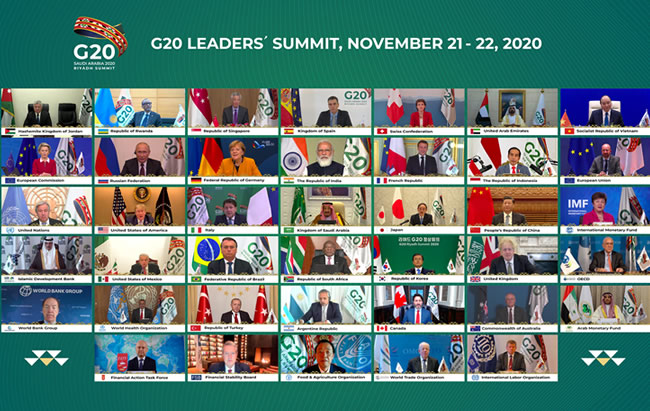
Photo: G20 Leaders’ Family Photo from Today’s Opening Session of the G20 Riyadh Summit. Image provided by Saudi G20 Presidency.
Source: Saudi G20 Presidency
|GlobalGiants.Com|







Edited & Posted by the Editor | 2:40 PM | View the original post
October 24, 2020
Member States Sign Preamble of UN Charter to Commemorate the 75th Anniversary of the United Nations
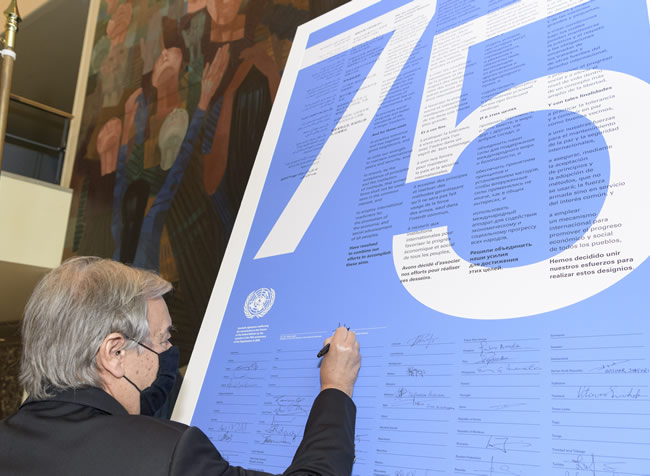
Photo: To commemorate the 75th Anniversary of the United Nations (24 October), Volkan Bozkir, President of the seventy-fifth session of the United Nations General Assembly, has invited all Member and Observer States to sign the preamble of the UN Charter as a symbolic gesture of recommitment to its principles. The signed poster will be displayed in the General Assembly Hall on 26 October, during the mandated General Assembly UN Day observance event.
Secretary-General António Guterres signs the Preamble of the UN Charter. 22 October 2020. New York, United States of America. UN Photo/Manuel ElÃas.
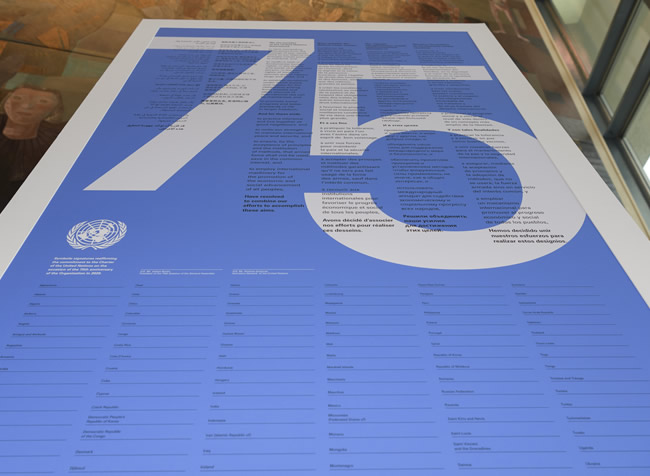
Photo: To commemorate the 75th Anniversary of the United Nations (24 October), Volkan Bozkir, President of the seventy-fifth session of the United Nations General Assembly, has invited all Member and Observer States to sign the preamble of the UN Charter as a symbolic gesture of recommitment to its principles. The signed poster will be displayed in the General Assembly Hall on 26 October, during the mandated General Assembly UN Day observance event.
The photo shows a view of the Preamble of the UN Charter. 22 October 2020. New York, United States of America. UN Photo/Manuel ElÃas.
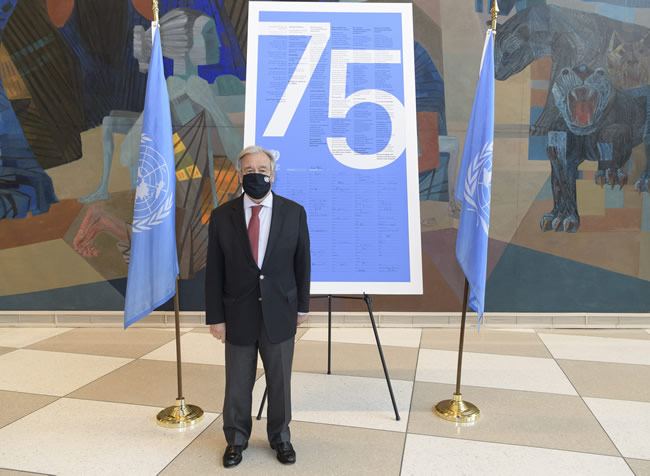
Photo: To commemorate the 75th Anniversary of the United Nations (24 October), Volkan Bozkir, President of the seventy-fifth session of the United Nations General Assembly, has invited all Member and Observer States to sign the preamble of the UN Charter as a symbolic gesture of recommitment to its principles. The signed poster will be displayed in the General Assembly Hall on 26 October, during the mandated General Assembly UN Day observance event.
Secretary-General António Guterres poses in front of the Preamble of the UN Charter. 22 October 2020. New York, United States of America. UN Photo/Manuel ElÃas.
Source: United Nations, New York
|GlobalGiants.Com|
As the @UN turns 75, the world faces colossal challenges.
— António Guterres (@antonioguterres) October 24, 2020
But with global solidarity and cooperation, we can overcome them.
That’s what the @UN is all about. #UN75 pic.twitter.com/C4MpiKpz1b







Edited & Posted by the Editor | 1:10 PM | View the original post
October 23, 2020
Heads of State & Government at Extraordinary UNESCO Meeting recommit to Education and its Financing during and after the Pandemic.
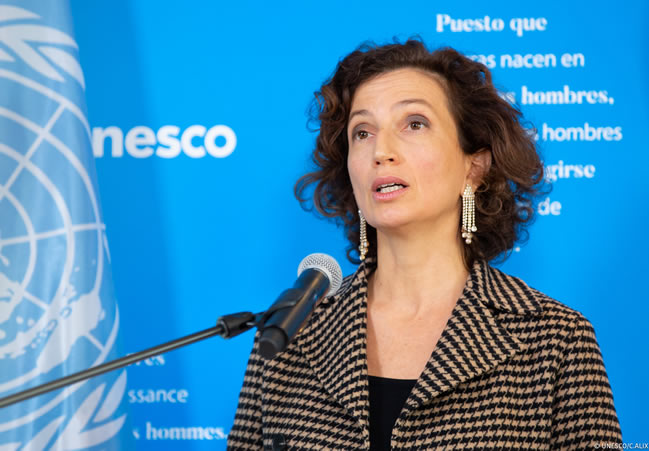
Photo: UNESCO Director-General Audrey Azoulay at the Global Education Meeting. UNESCO Headquarters, Paris. Image provided by & copyright © UNESCO/Christelle ALIX.
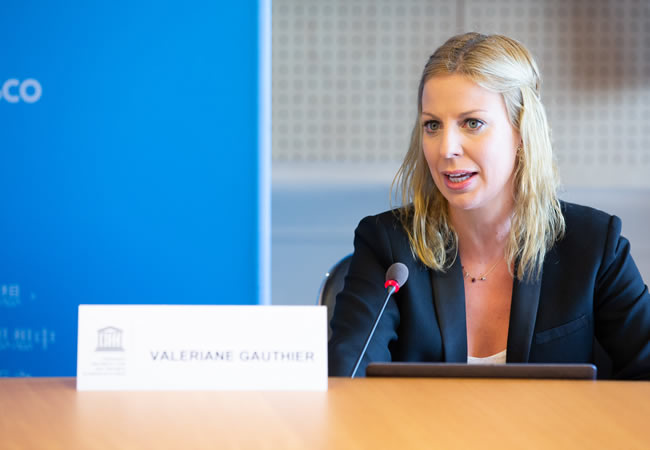
Photo: Global Education Meeting. UNESCO Headquarters, Paris. Image provided by & copyright © UNESCO/Christelle ALIX.
Paris, October 23, 2020 — Heads of State & Government, Ministers from over 70 countries, and international partners met online in an extraordinary Global Education Meeting convened by UNESCO, the governments of Ghana, Norway, and the United Kingdom on October 22. They adopted a Declaration expressing a strong commitment to protecting education financing and outlining measures to be chosen over the next year to safeguard education from the devastating impact of the disruption caused by COVID19.
“At a time when countries are making difficult choices and trade-offs to turn societies around, education must be our top priority, our pillar for recovery. And yet only a minuscule share - on average less than 1% - has been set aside for education and training in national stimulus packages. Financing education is not a cost: it is our most crucial long-term investment. If we do not allocate this funding now, we will face a bleaker future,” said UNESCO Director-General Audrey Azoulay.
The meeting brought together the UN’s Secretary-General, the Presidents of Angola, Colombia, the Democratic Republic of the Congo, Kenya, Namibia, Portugal, and Rwanda. The Prime Ministers of Italy, Morocco, Norway, and Spain, the Deputy Prime Minister of Uzbekistan, and SDG Advocate Queen Mathilde of Belgium attended the meeting.
Over 65 ministers of education from the five continents took the floor in the meeting to share measures to counter the pandemic’s impact on learning, along with multilateral and regional organizations, the Global Partnership for Education, and the Education Above All Foundation, among others.
UN Secretary-General Antonio Guterres underlined that education is the solution, and financing and political will are critical.
Affirming that “education is at the heart of the EU’s investment in development,” the European Commissioner for International Partnerships, Jutta Urpilainen, announced, “the decision to increase EU financing of assistance to education in partner countries under my responsibility from 7% to 10%.”
Prime Minister Giuseppe Conte of Italy declared that quality education would be one of the pillars of the Italian G20 presidency in 2021, focusing on people, the planet, and prosperity.
The UK’s Special Envoy for Education, Baroness Sugg, highlighted the United Kingdom’s G7 presidency’s focus. “The UK is standing up for every girl’s right to 12 years of quality education. It is putting this issue at the heart of our G7 Presidency and co-hosting a major Global Education Summit next year to raise funds to get children into school and build back better from coronavirus,” she said.
Prime Minister Erna Solberg of Norway, co-host of the meeting, stated that “two elements are important for rapid recovery: financing and political commitment. In many cases, the right to education will remain an empty promise unless education spending increases. We need to mobilize more international financing for global education.”
The endorsed Declaration defines priority actions that are essential for educational recovery in the coming 15 months:
- Taking every measure to reopen schools safely and inclusively;
- Supporting all teachers as frontline workers and paying heed to their training and professional development;
- Investing in skills development from the socio-emotional dimension to gaining competences for new jobs;
- Narrowing the digital divide that has shut out education for one-third of the world’s students.
These priority actions require that education budgets be at least protected, if not increased.
In the Declaration, governments and partners state their commitment to:
- Maintain or increase the share of public spending on education to at least 4-6% of GDP and 15-20% of public expenditure;
- Ensure that stimulus packages support measures that will mitigate learning losses and get the most vulnerable back to school;
- Increase the volume, predictability, and effectiveness of international aid;
- target assistance to countries and populations most in need, including those not reached by government programs.
The endorsed Declaration also condemns recent attacks on teachers, students, and schools and reaffirms education and teachers’ role.
President Uhuru Kenyatta said that Kenya “included a large education component in our economic stimulus package.”
Spain’s Prime Minister Pedro Sanchez said that “the modernization of our education system is a priority for this Government,” and “that education and professional development would become a cross-cutting policy involving all government ministries.
Colombia’s President Ivan Duque Marquez asserted that the pandemic brought understanding that education is the most important public policy tool to transform societies.
UNHCR Special Envoy Angelina Jolie, who has supported UNESCO’s Global Education Coalition, stated that “all countries face huge pressures. But to try to balance the books at the expense of education would be utterly self-defeating, as well as morally indefensible.”
In their interventions, numerous participants recognized UNESCO’s role in improving global education coordination to accelerate progress towards SDG4.
As part of the Global Education Meeting, a group of global organizations called for urgent investment in education to prevent a generational catastrophe.
Source: UNESCO, Paris
|GlobalGiants.Com|

“The first duty of government is to see that people have food, fuel, and clothes. The second, that they have means of moral and intellectual education.”
— John Ruskin.







Edited & Posted by the Editor | 12:32 PM | View the original post
September 27, 2020
Virtuoso violinist Renaud Capuçon designated UNESCO Artist for Peace
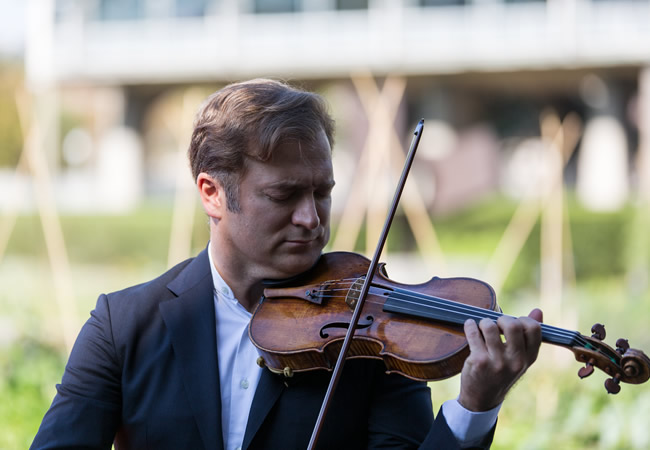
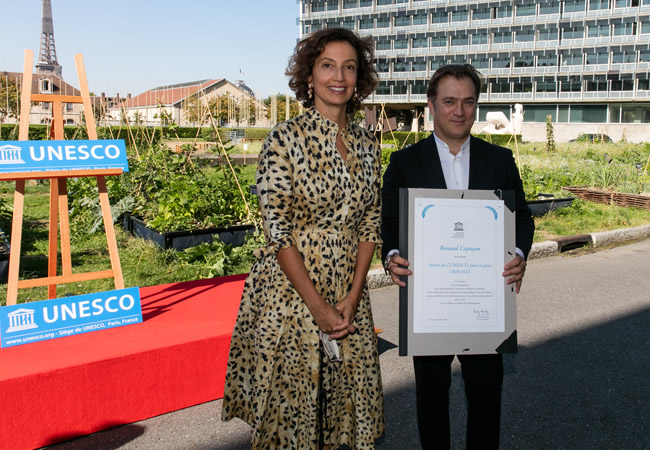
Photos: Reception ceremony for Mr. Renaud Capuçon as a Unesco Artist for Peace. UNESCO Headquarters, Paris. September 22, 2020. Images provided by & copyright © UNESCO / Fabrice GENTILE.
Paris, France, September 26 — UNESCO Director-General Audrey Azoulay named Renaud Capuçon, internationally renowned French violinist, as a UNESCO Artist for Peace, in a ceremony at UNESCO Headquarters on September 22.
Mr. Capuçon takes up the torch held by extraordinary musicians who have put their fame at UNESCO’s service, such as Yehudi Menuhin and Mstislav Rostropovitch, who served respectively from 1992 to 1999 and from 1998 to 2007, and with whom Renaud Capuçon performed.
In his capacity as a UNESCO Artist for Peace, he will contribute to raising awareness about the Organization and supporting priorities and activities around artistic and cultural education, the diversity of cultural expressions, and a culture of peace.
Born in Chambery, Savoie, France, Renaud Capuçon entered the conservatory at four. He is a virtuoso violinist, endowed with talent and energy unanimously praised, and as a humanist devoted to the transmission of music. He founded several music festivals, in particular, “Les Rencontres artistiques de Bel-Air” near his hometown and the Easter Festival of Aix en Provence, hosting the most excellent musicians in the world.
After the ceremony, standing at the edge of the UNESCO vegetable garden, Mr. Capuçon performed Christoph Willibald Gluck’s Melody from Orfeo on his famous Guarnerius, which belonged to the Vicomte de Panette, to the pleasure of guests and gardeners.
UNESCO Artists for Peace are internationally-renowned personalities who use their influence, character, and prestige to promote the Organization’s message and programs. UNESCO works in partnership with other Artists for Peace, such as Valery Gergiev, Kudsi Erguner, and N. Scott Momaday, to advance culture and creation in the name of peace.
Source: UNESCO Headquarters, Paris
|GlobalGiants.Com|
The Director-General of the United Nations Educational, Scientific and Cultural Organization, Audrey Azoulay, has appointed the world-famous French violinist Renaud Capuçon, UNESCO Artist for Peace at the UNESCO headquarters in Paris.
Renaud Capuçon - Violin Concerto No. 3 - Mozart - Verbier Festival







Edited & Posted by the Editor | 4:29 AM | View the original post
September 23, 2020
UN General Assembly Holds High-level Meeting to Commemorate 75th Anniversary of United Nations; General Debate of the General Assembly's Seventy-Fifth Session is now Open.
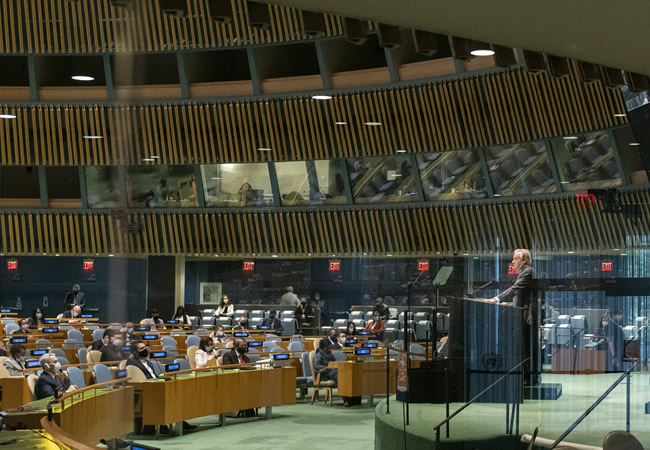
Photo: UN Secretary-General António Guterres (at podium) addresses the opening of the general debate of the General Assembly’s seventy-fifth session. 22 September 2020. New York, United States of America. UN Photo/Mark Garten.
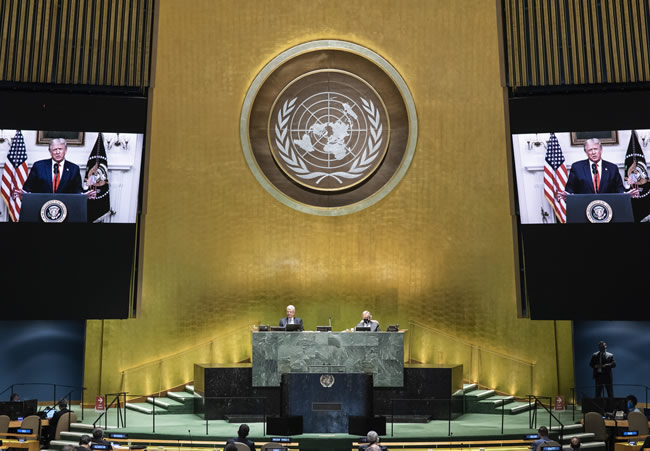
Photo: Donald J. Trump (on screens), President of the United States of America, addresses the General Assembly’s seventy-fifth session’s general debate.
Seated at dais are Secretary-General António Guterres (at right) and Volkan Bozkir, President of the seventy-fifth session of the United Nations General Assembly.
22 September 2020. United Nations, New York. UN Photo/Eskinder Debebe.
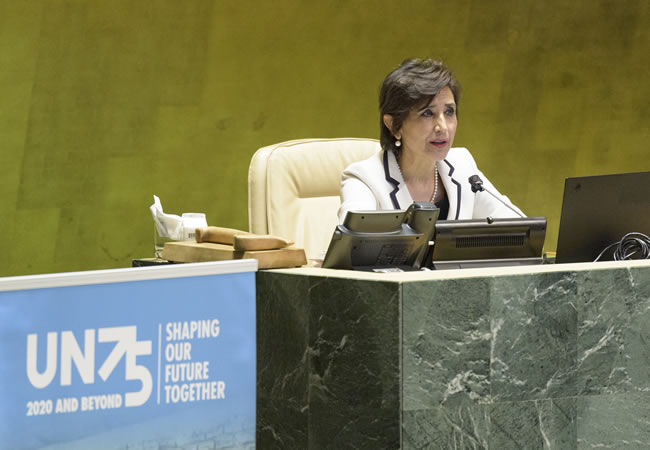
Photo: Amal Mudallali, Vice-President of the 75th session of the General Assembly and Permanent Representative of the Republic of Lebanon chairs the General Assembly’s high-level meeting to commemorate the seventy-fifth anniversary of the United Nations. 21 September 2020. New York, United States of America. UN Photo/Manuel ElÃas.
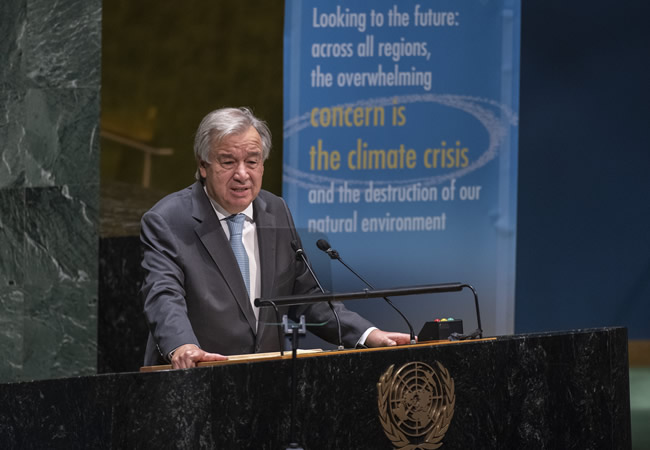
Photo: UN Secretary-General António Guterres makes remarks to the General Assembly’s high-level meeting to commemorate the United Nations’ seventy-fifth anniversary. 21 September 2020. United Nations, New York. UN Photo/Eskinder Debebe.
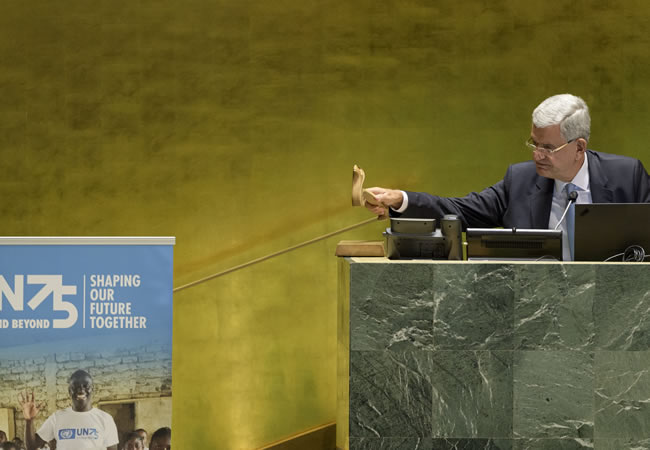
Photo: Volkan Bozkir, President of the seventy-fifth session of the United Nations General Assembly, suspends the General Assembly’s high-level meeting to commemorate the United Nations’ seventy-fifth anniversary. 21 September 2020. New York, United States of America. UN Photo/Manuel ElÃas.
Source: United Nations, New York
|GlobalGiants.Com|







Edited & Posted by the Editor | 2:13 AM | View the original post
September 19, 2020
Peace Bell Ceremony in Observance of International Peace Day at the United Nations Headquarters.
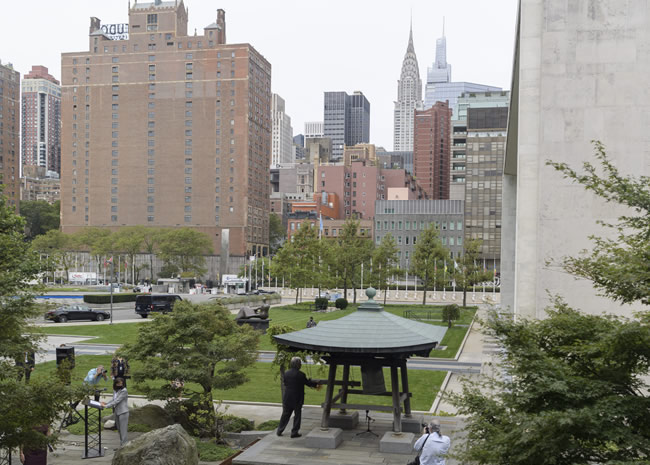
Photo: A broad view of the garden as the UN Secretary-General António Guterres rings the Peace Bell at UN headquarters’ annual ceremony to observe the International Day of Peace (21 September).
The theme of the International Day of Peace of 2020 is “Shaping Peace Together.” This year COVID-19 has reminded us that what happens in one part of the planet can impact people everywhere.
17 September 2020. New York, United States of America. UN Photo/Manuel ElÃas.
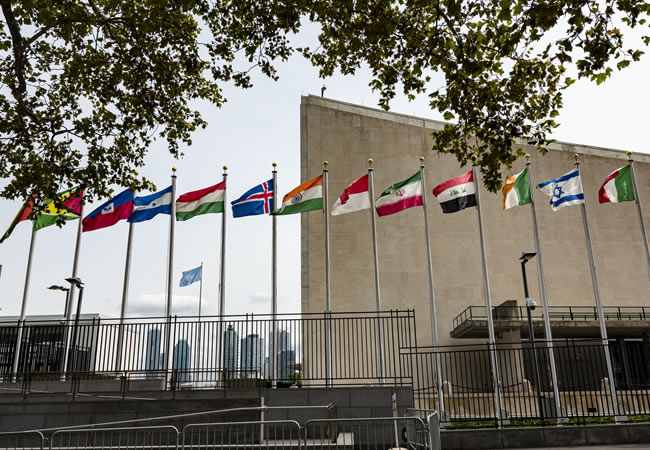
Photo: A view of flags in front of the visitors’ entrance to the United Nations Headquarters with part of the General Assembly building in the background. 17 September 2020. United Nations, New York. UN Photo/Rick Bajornas.
Source: United Nations, New York
|GlobalGiants.Com|







Edited & Posted by the Editor | 12:03 PM | View the original post
September 13, 2020
United Nations General Assembly Holds 64th Plenary Meeting.
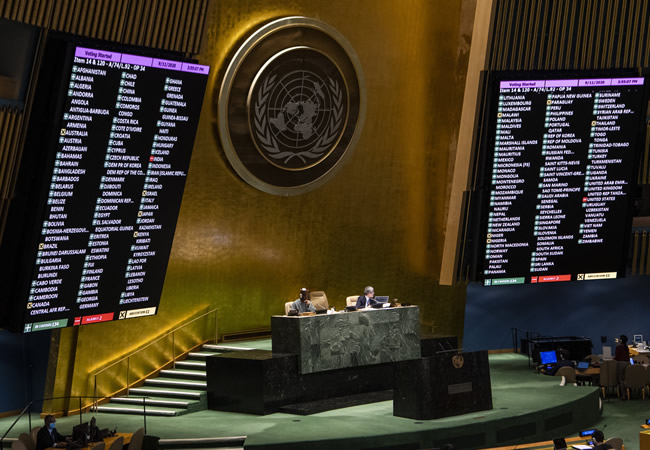
Photo: The UN General Assembly votes on draft resolution A/74/L.92 under agenda item 14 entitled “Comprehensive and coordinated response to the coronavirus (COVID-19) pandemic”. At the dais is Tijjani Muhammad-Bande (left), President of the seventy-fourth session of the United Nations General Assembly, and Kenji Nakano, Chief of the General Assembly Affairs Branch, Department for General Assembly and Conference Management (DGACM). 11 September 2020. United Nations, New York. UN Photo/Eskinder Debebe.
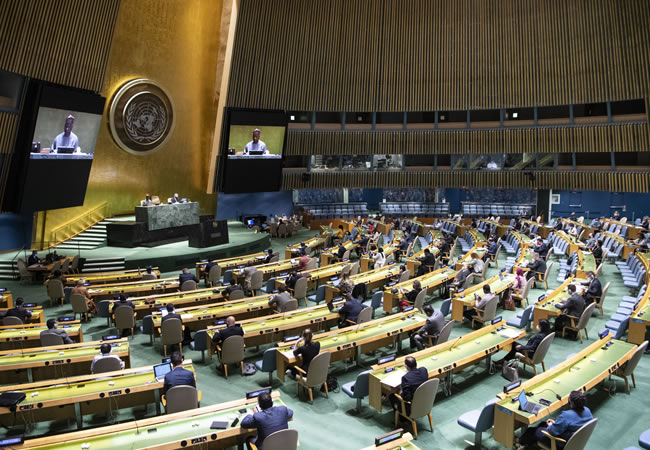
Photo: A broad view of the UN General Assembly Hall as Tijjani Muhammad-Bande (left at the dais and on screens), President of the seventy-fourth session of the United Nations General Assembly, chairs the 64th plenary meeting of the 74th session of the General Assembly. The meeting took action on draft resolutions A/74/L.91 on Malaria and A/74/L.92 on a comprehensive and coordinated response to the coronavirus (COVID-19) pandemic. 11 September 2020. United Nations, New York. UN Photo/Eskinder Debebe.
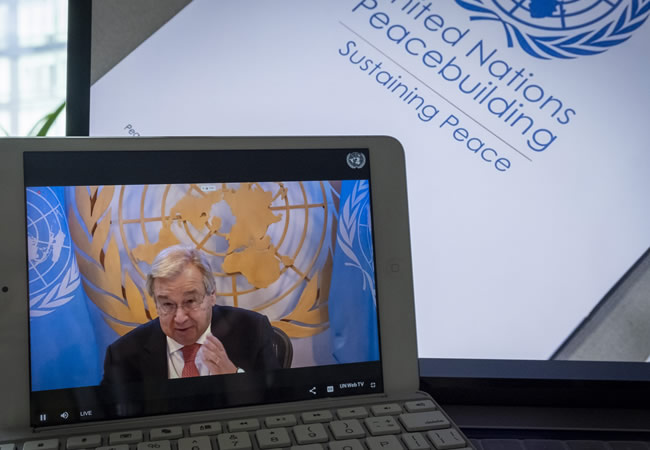
Photo: UN Secretary-General António Guterres addresses the General Assembly’s virtual informal meeting on the Report of the Secretary-General on the Review of the Peacebuilding Architecture. 11 September 2020. New York, United States of America. UN Photo / Loey Felipe.
Source: United Nations, New York
|GlobalGiants.Com|







Edited & Posted by the Editor | 4:25 AM | View the original post
September 9, 2020
The third UNESCO Creative Cities Summit in Beijing to focus on Creativity and Technology.
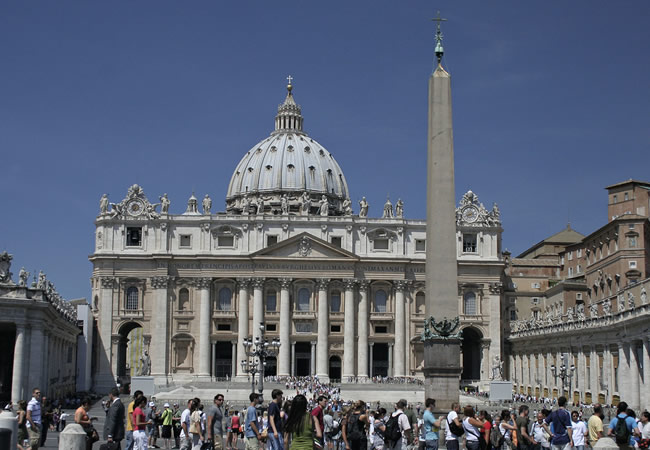
Photo: St. Peters Basilica, Rome, Italy. Image credit: Rory Haddon. Rome is a UNESCO Creative City of Film.
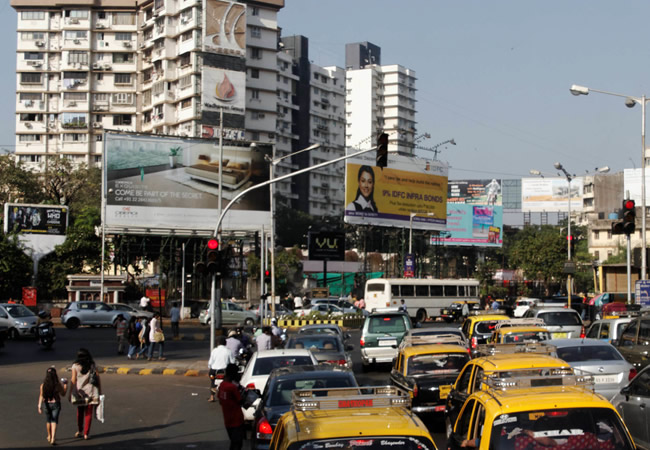
Photo: Mumbai, India. Image credit: Ronald Woan. Mumbai is a UNESCO Creative City of Film.
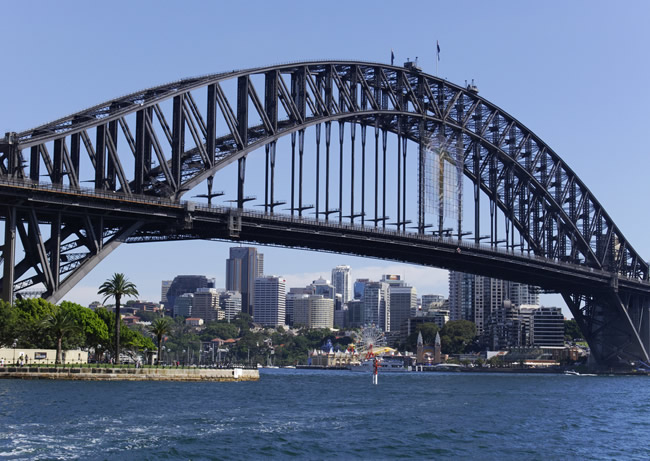
Photo: Sydney Harbour Bridge, Sydney, Australia. Image credit: Carlos Y. Sydney is a UNESCO Creative City of Film.
The third edition of the UNESCO Creative Cities Summit in Beijing is taking place on 17 and 18 September 2020, under the theme ‘Creativity empowers Cities, Technology creates the Future’.
The Summit is being convened by UNESCO, Paris, in cooperation with the Ministry of Education of the People’s Republic of China, the People’s Government of Beijing Municipality, the National Commission of the People’s Republic of China for UNESCO, and the Beijing Municipal Science and Technology Commission.
The event will gather a diverse set of urban stakeholders, including Mayors and city policymakers from UNESCO Creative Cities, high-level representatives from intergovernmental organizations, academics, experts, and private sector representatives.
While aiming to build on innovation and new technologies, the Summit will prioritize the human factor in sustainable urban development. This approach is in line with UNESCO’s cross-cutting approach to cities and urban development, and reflects contemporary challenges and urban complexity created by the COVID-19 pandemic.
With a specific focus on the digital economy, the 3rd Beijing Summit will launch the latest UNESCO e-publication entitled ‘UNESCO Creative Cities’ Response to COVID-19’. The publication showcases the various initiatives undertaken by Creative Cities worldwide that have leveraged the power of culture and creativity in response to the COVID-19 pandemic.
Given the ongoing pandemic, this year’s edition will follow a hybrid format, combining physical presence for representatives within the People’s Republic of China and online participation for speakers based in other countries.
The meeting will be broadcast live with simultaneous English and Chinese (also in French for the Opening Ceremony) languages.
The UNESCO Creative Cities Network (UCCN) was created in 2004 to promote cooperation with and among cities that have identified creativity as a strategic factor for sustainable urban development. The 246 cities which currently make up this network work together towards a common objective: placing creativity and cultural industries at the heart of their development plans at the local level and cooperating actively at the international level.
The Network covers seven creative fields: Crafts and Folk Arts, Media Arts, Film, Design, Gastronomy, Literature, and Music.
The Creative Cities Network is a privileged part of UNESCO, not only as a platform for reflection on the role of creativity as a lever for sustainable development but also as a breeding ground of action and innovation.
Source: UNESCO
|GlobalGiants.Com|
— GlobalGiants.Com and its Chief Editor are contributors towards the enhancement of the UNESCO Creative Cities Network.







Edited & Posted by the Editor | 10:00 AM | View the original post
September 3, 2020
World Intellectual Property Organization (WIPO) launches the Global Innovation Index (GII) 2020. India ranked in the top 50 nations.
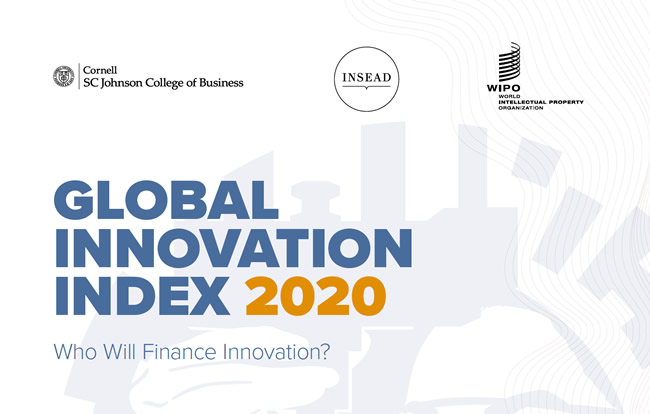
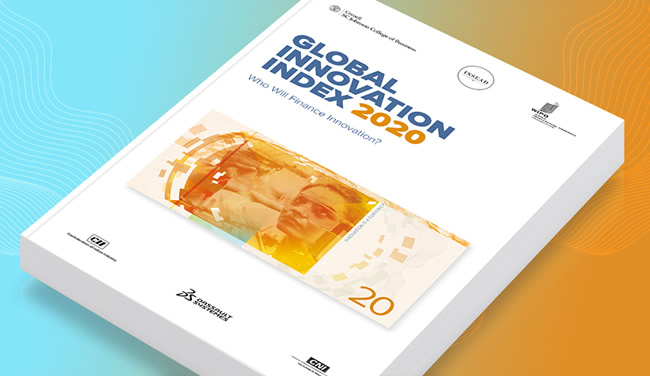
Geneva, Switzerland. September 2, 2020 —World Intellectual Property Organization (WIPO) launched the Global Innovation Index 2020. Mr. Francis Gurry, Director-General of the World Intellectual Property Organization (WIPO); Mr. Wang Zhigang, Minister for Science and Technology, China; Ms. Agnès Pannier-Runacher, Minister in Charge of Industry, France; Ms. Christine Lambrecht, Minister for Justice and Consumer Protection, Germany; and Mr. Piyush Goyal, Minister of Commerce and Industry and Railways, India, presented their messages.
The GII 2020’s theme asks Who Will Finance Innovation? A key question is how the economic fallout from the COVID-19 crisis will impact start-ups, venture capital, and other traditional innovation financing sources. Many governments are setting up emergency relief packages to cushion the lockdown’s impact and face the looming recession. But the GII 2020 advises that further rounds of support must prioritize and then broaden support for innovation, particularly for smaller enterprises and start-ups that are facing hurdles in accessing rescue packages.
“The rapid, worldwide spread of the coronavirus requires fresh thinking to ensure a shared victory over this quintessential global challenge,” said WIPO Director General Francis Gurry. “Even as we all grapple with the immediate human and economic effects of the COVID-19 pandemic, governments need to ensure that rescue packages are future-oriented and support the individuals, research institutes, companies, and others with innovative and collaborative new ideas for the post-COVID era. Innovations equal solutions.”
In its associated annual ranking of the world’s economies on innovation capacity and output, the GII shows year-on-year stability at the top. Still, there is a gradual eastward shift in the locus of innovation as a group of Asian economies - notably China, India, the Philippines, and Viet Nam - have advanced considerably in the innovation ranking over the years.
Switzerland, Sweden, U.S., U.K, and the Netherlands lead the innovation ranking, with a second Asian economy - the Republic of Korea - joining the top 10 for the first time (Singapore is number 8). High-income countries dominate the top 10.
Global rankings - Top 20
- Switzerland
- Sweden
- United States of America
- United Kingdom
- Netherlands
- Denmark
- Finland
- Singapore
- Germany
- Republic of Korea
- Hong Kong (China)
- France
- Israel
- China
- Ireland
- Japan
- Canada
- Luxembourg
- Austria
- Norway
India has climbed four spots and has been ranked 48th. Amid the COVID -19 pandemic, it comes as a piece of uplifting news for India and a testament to its robust R & D Ecosystem. India was at the 52nd position in 2019 and was ranked 81st in the year 2015. It is a remarkable achievement to be in a league of highly innovative developed nations all over the globe, India’s Ministry of Commerce & Industry said. The WIPO had also accepted India as one of the leading innovation achievers of 2019 in the central and southern Asian region. The country has shown a consistent improvement in its innovation ranking for the last five years.
The top-performing economies in the GII are still almost exclusively from the high-income group, with China (14th) remaining the only middle-income economy in the GII top 30. Malaysia (33rd) follows.
India (48th) and the Philippines (50th) make it to the top 50 for the first time. The Philippines achieves its best rank ever—in 2014, it ranked 100th. Heading the lower-middle-income group, Viet Nam ranks 42nd for the second consecutive year— from 71st in 2014. Indonesia (85th) joins the top 10 of this group. Tanzania tops the low-income group (88th).
“As shown by China, India, and Viet Nam, the persistent pursuit of innovation pays off over time,” said Former Dean and Professor of Management at Cornell University, Soumitra Dutta. “The GII has been used by governments of those countries and others worldwide to improve their innovation performance.”
Source: WIPO
|GlobalGiants.Com|
(The Chief Editor is an Alumnus of the World Intellectual Property Organization (WIPO) Academy, Geneva, Switzerland.)
Main findings of the Global Innovation Index (GII) 2020.







Edited & Posted by the Editor | 4:53 AM | View the original post
August 31, 2020
IMF Managing Director Kristalina Georgieva - Behind the Scenes
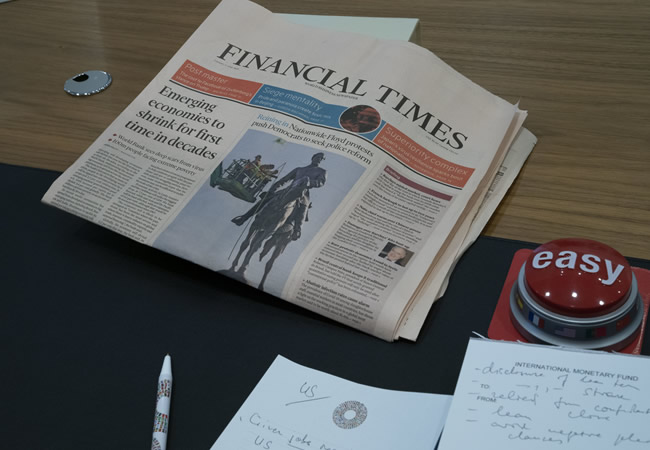
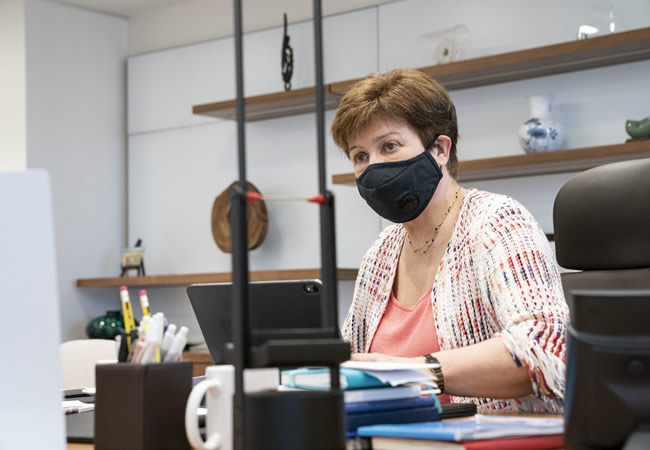
Photos: IMF Managing Director Kristalina Georgieva prepares for and participates in an online interview with a Chamber of Commerce at the International Monetary Fund in Washington, D.C. IMF Photos/Kim Haughton.
Source: IMF (International Monetary Fund)
|GlobalGiants.Com|







Edited & Posted by the Editor | 2:17 PM | View the original post
August 27, 2020
The UNESCO Creative Cities of Film launch a collective website.
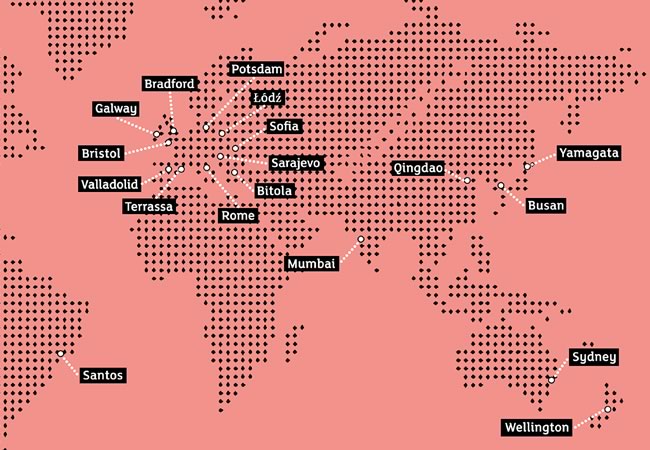
The 18 UNESCO Creative Cities of Film have launched a collective and dedicated website to connect within the UNESCO Creative Cities Network. The platform will allow cities to share their ongoing work and strengthen and enhance international collaboration within the Network.
The website’s launch provides cities of film, a platform to celebrate major initiatives and collaborations that highlight Creative Cities’ valuable contribution to sustainable urban development in line with the 2030 Agenda for Sustainable Development. The site contains profiles for each member city, examples of critical initiatives running in each location, and news about collaborative successes and opportunities between member cities.
Bristol, a UNESCO Creative City of Film designated in 2017, led the design and development of this multilingual website with support from fellow cities of the film worldwide.
Source: UNESCO Creative Cities of Film
|GlobalGiants.Com|







Edited & Posted by the Editor | 4:18 PM | View the original post
August 24, 2020
United Nations Meeting of States Parties to Convention on Law of the Sea
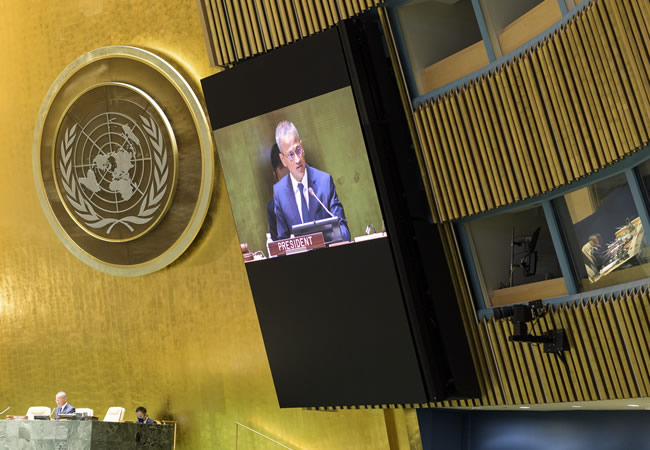
Photo: Burhanudeen Gafoor (on-screen), Permanent Representative of the Republic of Singapore to the United Nations, presides over the 30th meeting of States Parties to the UN Convention on the Law of the Sea to elect seven judges of the International Tribunal for the Law of the Sea. This meeting was the first in-person meeting held at the General Assembly Hall since March. August 24, 2020. New York, United States of America. UN Photo/Manuel ElÃas.
|GlobalGiants.Com|







Edited & Posted by the Editor | 6:19 AM | View the original post
July 5, 2020
The 209th Session of the UNESCO Executive Board opens in Paris.
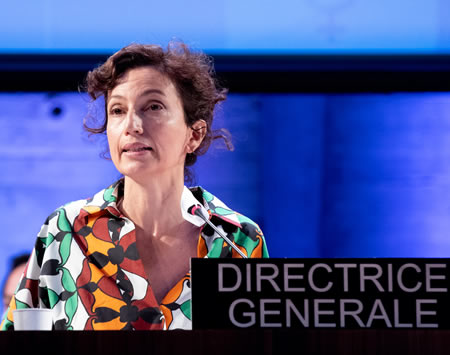
Photo: UNESCO Headquarters Paris. The 209th Session of the UNESCO Executive Board. Image provided by & copyright © UNESCO/Christelle ALIX.
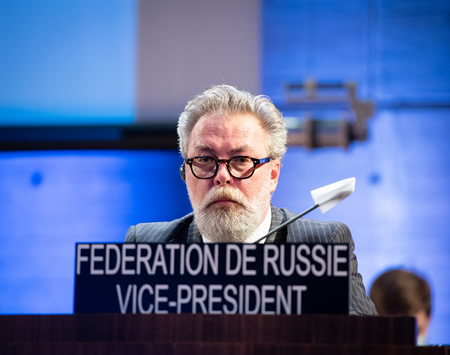
Photo: UNESCO Headquarters Paris. The 209th Session of the UNESCO Executive Board. Image provided by & copyright © UNESCO/C.Bailleul.
Paris, France | July 4, 2020 — “We must respond to the urgency of the pandemic and afterward. Firstly, by continuing our functional reorganization, not only to gain flexibility and reactivity, but also precision and specificity,” said Audrey Azoulay, UNESCO Director-General, at the opening of the 209th session of the UNESCO Executive Board.
She spoke extensively about UNESCO’s response to the COVID-19 crisis in the Member States. The answer to the health crisis has prioritized mobilization of cooperation and resources, advocacy and awareness-raising campaigns, provision of policy and technical support, and the generation of data and analyses, she said.
UNESCO is supporting states in establishing fair, inclusive, and equitable education systems, preserving biodiversity, making science a powerful lever of international cooperation, helping culture in the service of innovation and social cohesion, and combating discrimination and exclusion.
“In general, the initiatives to increase transversality in the crisis have allowed for better coordination of resources and actions, from which we should draw lessons. I believe that we can also be pleased with our new administration and management sector, which has enabled us to manage this crisis coherently and flexibly,” said Audrey Azoulay. The Strategic Transformation, as initiated two years ago, established this new sector as a first step to boost the Organization’s efficiency.
Azoulay also highlighted that it is essential to have the experience gained from the crisis guide the Organization’s future actions. UNESCO is currently reflecting on its programs and developing a new strategy to take the Organization to the eve of 2030.
Source: UNESCO
|GlobalGiants.Com|







Edited & Posted by the Editor | 3:57 AM | View the original post
June 18, 2020
Turkish diplomat Volkan Bozkir elected President of the forthcoming session of the UN General Assembly; Ireland, India, Kenya, Mexico, and Norway elected new non-permanent members of the Security Council for 2021-2023.
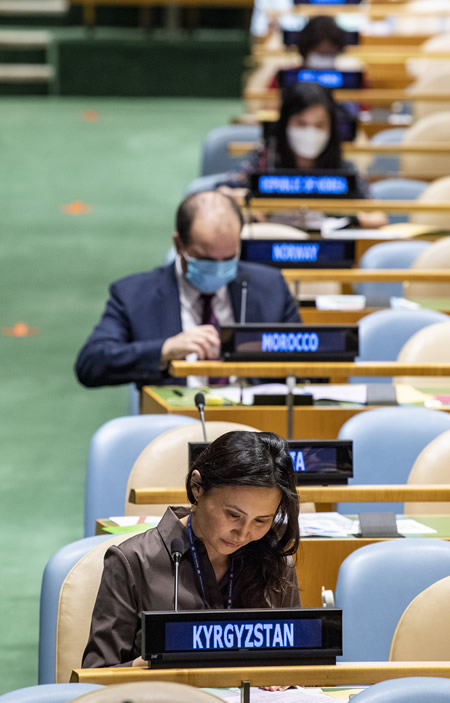
Photo: The General Assembly holds elections by secret ballot without a plenary meeting. Elections took place for 75th President of the General Assembly, new non-permanent members of the Security Council, and new members of the Economic and Social Council.
Mr. Volkan Bozkir from Turkey was elected President of the seventy-fifth session of the United Nations General Assembly. The Assembly elected Ireland, India, Kenya, Mexico, and Norway as new non-permanent members of the Security Council for 2021-2023.
Mirgul Moldoisaeva (front row), Permanent Representative of the Kyrgyz Republic to the United Nations, and delegates behind her prepare their ballots during the General Assembly elections. June 17, 2020. United Nations, New York. UN Photo/Eskinder Debebe.
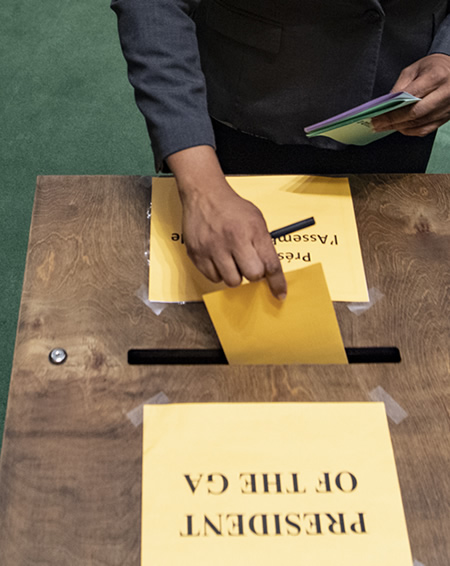
Photo: The General Assembly holds elections by secret ballot without a plenary meeting. Elections took place for 75th President of the General Assembly, new non-permanent members of the Security Council, and new members of the Economic and Social Council.
Mr. Volkan Bozkir from Turkey was elected President of the seventy-fifth session of the United Nations General Assembly. The Assembly elected Ireland, India, Kenya, Mexico, and Norway as new non-permanent members of the Security Council for 2021-2023.
A delegate casts his vote for the next President of the General Assembly during the General Assembly elections. June 17, 2020. United Nations, New York. UN Photo/Eskinder Debebe.
United Nations, New York | June 17, 2020 — Wearing facemasks and practicing physical distancing, ambassadors from 192 UN Member States filed into the iconic General Assembly Hall to cast their ballots during pre-determined time slots: an added layer of protection in the COVID-19 era.
“Since the onset of the COVID-19 pandemic, we have all had to work under extraordinary conditions to overcome the myriad of challenges facing us,” the current General Assembly President, Tijjani Muhammad-Bande, said ahead of the elections.
“Indeed,” he added, “(they) represent our common commitment to ensuring the uninterrupted continuation of the important work of the United Nations, following the values and principles of the United Nations Charter.”
Mr. Volkan Bozkir from Turkey was elected President of the seventy-fifth session of the United Nations General Assembly.
Mr. Bozkir, a veteran diplomat and parliamentarian, will preside over the landmark 75th session of the UN General Assembly, which opens in September. He was the sole candidate for the post.
The General Assembly elected Ireland, India, Kenya, Mexico, and Norway as the new non-permanent members of the Security Council for 2021-2023.
Ambassadors of UN member states voted for five new countries to join the UN Security Council as non-permanent members.
The Council comprises five permanent members - China, France, Russia, the United Kingdom, and the United States - and ten non-permanent members, who serve for two-year periods.
While three countries vied for two seats allocated to African and Asia-Pacific States, only India was confirmed. Djibouti and Kenya face a second round of voting to on Thursday.
A similar race occurred for the Western European and other States group, where Canada did not secure the required two-thirds majority or 128 votes.
Norway and Ireland will begin their terms starting in January, as will Mexico, the representative for the Latin America and Caribbean region.
Eighteen countries will also occupy vacant seats in the Economic and Social Council, another of the UN’s six principal organs.
They are Argentina, Austria, Bolivia, Bulgaria, France, Germany, Guatemala, Indonesia, Japan, Liberia, Libya, Madagascar, Mexico, Nigeria, Portugal, the Solomon Islands, the United Kingdom, and Zimbabwe.
Preparing for September
While this year’s General Assembly falls during the UN’s 75th anniversary, the pandemic adds to its historical significance, and the need to maintain safety measures.
Plans are in motion for the annual high-level week, where Heads of State address the world from the dais in the General Assembly Hall.
Mr. Muhammad-Bande, the current President, has written to the Member States about a scenario that foresees his successor’s and UN Secretary-General António Guterres’s presence in the Hall for the official opening. The world leaders will deliver their speeches via pre-recorded video statements.
Source: United Nations, New York
|GlobalGiants.Com|







Edited & Posted by the Editor | 2:40 PM | View the original post
June 15, 2020
World Health Organization (WHO) issues Advice for the Public on When and How to Use Masks.
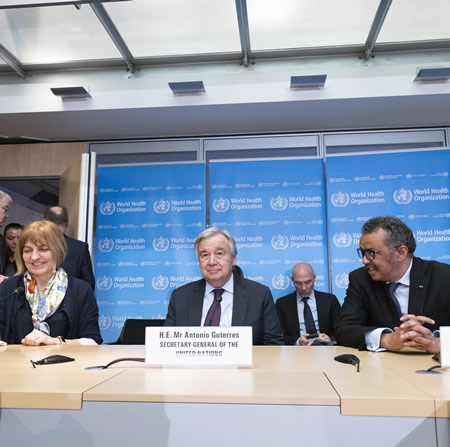
Photo: UN Secretary-General António Guterres (center) attends a briefing on the COVID-19 outbreak. Also present are Tedros Adhanom Ghebreyesus (second from right), Director-General of the World Health Organization (WHO), and Sylvie Briand (left, seated), Director of the Global Infectious Hazard Management of WHO. 24 February 2020. Geneva, Switzerland. UN Photo/Jean-Marc Ferré. [File Photo]
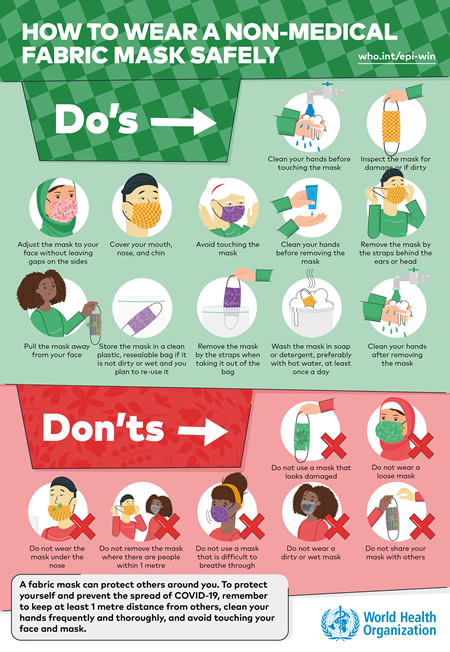

Following are excerpts from WHO Director-General’s remarks at the media briefing on COVID-19 and updated mask guidance:
Today WHO is publishing updated guidance on the use of masks for control of COVID-19.
This guidance is based on evolving evidence and provides updated advice on who should wear a mask, when he/she should wear it, and what should constitute the cover.
WHO has developed this guidance through a careful review of all available evidence, and extensive consultation with international experts and civil society groups.
I wish to be very clear that the guidance we are publishing today is an update of what we have been saying for months: that the use of masks is only a part of a comprehensive strategy in the fight against COVID.
Masks on their own will not protect you from COVID-19.
WHO advises medical masks for all people working in clinical areas of a health facility in precincts with the widespread transmission. Not for only workers dealing with patients with COVID-19.
WHO has updated its guidance on the use of masks by the general public in areas with community transmission.
WHO advises governments to encourage the general public to wear masks where widespread transmission and physical distancing are challenging — such as on public transport, in shops, or other confined or crowded environments.
Our updated guidance contains new information on the composition of fabric masks, based on academic research requested by WHO.
Based on this new research, the WHO recommends that fabric masks consist of at least three layers of different materials. Details of which materials we recommend for each segment are in the guidelines.
We also guide how to wash and maintain a fabric mask.
Our guidance also explains how to use a mask safely.
People can potentially infect themselves if they use contaminated hands to adjust a mask or repeatedly take it off and put it on without cleaning their hands in between.
Masks can also create a false sense of security, leading people to neglect measures such as hand hygiene and physical distancing.
I cannot say this enough: masks alone will not protect you from COVID-19.
Masks are not a replacement for physical distancing, hand hygiene, and other public health measures.
Masks are only of benefit as part of a comprehensive approach in the fight against COVID-19.
WHO will continue to provide the world with advice based on the most up-to-date evidence, as part of our commitment to serving the world with science, solutions, and solidarity.
Source: World Health Organization (WHO)
|GlobalGiants.Com|







Edited & Posted by the Editor | 1:59 AM | View the original post
May 25, 2020
World Day for Cultural Diversity for Dialogue and Development — Message from Ms. Audrey Azoulay, Director-General of UNESCO.
World Day for Cultural Diversity for Dialogue and Development.
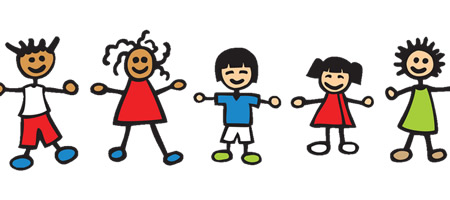
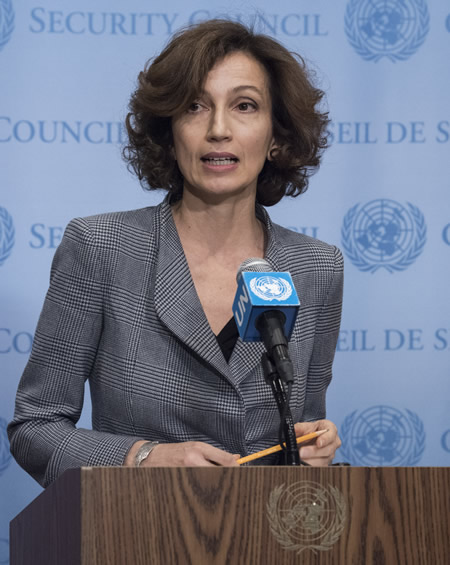
Photo: Audrey Azoulay, Director-General of the United Nations Educational, Scientific and Cultural Organization (UNESCO), briefs journalists following a Security Council meeting on the maintenance of international peace and security. 30 November 2017. United Nations, New York. UN Photo/Kim Haughton. [File Photo]
• World Day for Cultural Diversity for Dialogue and Development
• Message from Ms. Audrey Azoulay, Director-General of UNESCO
21 May 2020
This year’s World Day for Cultural Diversity for Dialogue and Development comes at a time of uncertainty and anxiety.
For many, the closure of public spaces, cultural institutions, and performance and concert halls has led to a constriction of cultural space and increased seclusion.
Fortunately, the technical means we have at our disposal today make it possible for those who can benefit from them to compensate for the narrowness of confined spaces. We have thus seen initiatives blossom that has renewed interest in cultural practices around the world and highlighted their abundant richness. By dint of coordinated action, initial efforts, and creativity, this imposed downtime has made it possible to see what is one of humanity’s riches: our diversity.
Although COVID-19 has not succeeded in curbing dialogue among cultures, the long-term consequences of the crisis, especially in economic terms, might inflict severe damage on diversity, as periods of crisis are conducive to concentration and standardization. It is this insidious threat that looms.
Without significant support, structures will disappear. We would miss the opportunities to stimulate and hear different ways of seeing and feeling. Cultural diversity may get diminished, and humanity would be the poorer for it.
We must, therefore, protect diversity without delay before it is too late. That is why UNESCO has launched the ResiliArt movement, whose purpose is to find ways of fostering the protection and promotion of cultural diversity in these difficult times. By bringing together artists, cultural professionals, governments, non-governmental organizations, and the private sector to reflect on the pandemic’s impact, we are developing the future of cultural diversity through collective intelligence and joint cultural building.
The current crisis must lead to new awareness and new efforts to ensure the development and continuation of varied cultural forms and flourishing cultural structures. The crisis has brought to light difficulties that were often already present.
On this 21 May, World Day for Cultural Diversity for Dialogue and Development, UNESCO appeals to all: together, let us celebrate and support cultural diversity, the symbol of our humanity.
Source: UNESCO
|GlobalGiants.Com|







Edited & Posted by the Editor | 12:22 AM | View the original post
May 18, 2020
UNESCO International Literacy Prizes 2020: Call for Applications and Nominations
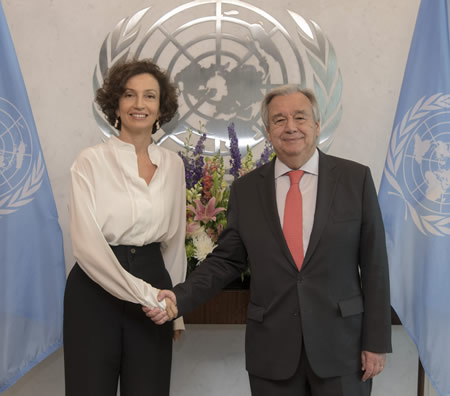
Photo: UN Secretary-General António Guterres (right) meets with Audrey Azoulay, Director-General of the United Nations Educational, Scientific, and Cultural Organization (UNESCO). July 16, 2019. United Nations, New York. UN Photo/Mark Garten. [File Photo]
Paris, France, May 18, 2020 — UNESCO has now opened its call for applications and nominations for the 2020 UNESCO International Literacy Prizes. This year UNESCO will reward five individuals or organizations around the world for their outstanding projects that promote literacy within the theme’ Teaching and learning literacy: the role of educators and changing pedagogies’.
This year’s thematic focus is highlighting teachers who are at the frontline of delivering literacy learning, and their contribution to promoting youth and adult literacy, linked to the Target 4.6 of the Sustainable Development Goal on Education (SDG4).
Since 1967, the UNESCO International Literacy Prizes have rewarded excellence and innovation in the field of literacy. Over 495 projects and programs around the world have already received recognition and support for their excellent work.
• Who can Apply and Who can Nominate?
Governments, non-governmental organizations, and individuals who promote literacy through projects and programs are welcome to apply.
Candidates should submit their Applications to Nominating Entities, such as the National Commission for UNESCO, in the program’s country.
Candidates can also submit their applications through the online platform. Details about the application and nomination process are on the UNESCO International Literacy Prizes’ website.
National Commissions and non-governmental organizations (NGOs) in official partnership with UNESCO are encouraged to nominate individuals, institutions, and organizations who are making outstanding contributions to promoting literacy and who request a nomination.
- Deadline for candidates to submit to nominating entities: June 28, 2020; midnight, Paris time.
- Deadline for nominating bodies to submit their nominations to UNESCO: July 12, 2020; midnight, Paris time.
An independent International Jury would asses the nominations. The Jury would be composed of five experts based on the selection criteria. The Director-General of UNESCO would select the award winners on the recommendations of the International Jury. UNESCO would present the prizes on the occasion of International Literacy Day.
• About the Prizes
Through two prestigious literacy Prizes, UNESCO supports effective literacy practices and encourages the promotion of dynamic literate societies to close the literacy gap of approximately 750 million people.
UNESCO distinguishes between two Literacy Prizes received by five laureates in total:
- The UNESCO King Sejong Literacy Prize (2 awards), was established in 1989. The Government of the Republic of Korea supports it. This Prize gives special consideration to programs that focus on the development and use of mother-tongue literacy education and training.
- The UNESCO Confucius Prize for Literacy (3 awards), was established in 2005. The Government of the People’s Republic of China supports it. This Prize recognizes programs that promote literacy amongst adults in rural areas and out-of-school youth, particularly girls and women.
Each Prizewinner receives a Medal, a Diploma, and US$ 20,000.
Source: UNESCO
|GlobalGiants.Com|







Edited & Posted by the Editor | 11:19 AM | View the original post







